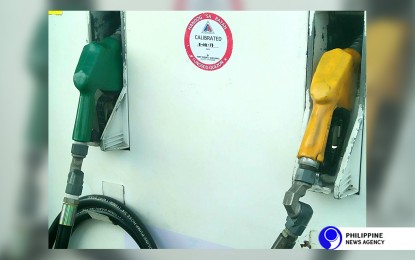[10.18] 코코 부문 리더들은 바이오디젤 첨가제의 변화를 제안합니다.
컨텐츠 정보
- 17,185 조회
본문
마닐라 – 코코넛 업계 리더들은 농부와 정유업체의 수익을 늘리고 국제 시장에서 원유 가격 상승이 국내에 미치는 영향을 완화하기 위해 현지에서 판매되는 디젤 연료에 혼합되는 첨가제의 양과 종류를 변경하기를 원합니다.
코코넛 오일 정제업체 협회(CORA)의 "Jesus Arranza" 회장은 수요일 인터뷰에서 자신의 그룹이 2006년 바이오연료법인 공화국법(RA) 9367의 개정을 옹호한다고 말했습니다. 주어진 순간에 세계 시장에서 어떤 상품이 더 저렴한지에 따라 코코 메틸 에스테르(CME)를 생산하고 디젤 연료의 첨가제로 팔몰레인 오일을 수입했습니다.
“코코넛 가격이 높을 때는 코코넛을 팔몰레인(디젤 연료)으로 대체해야 합니다. 이를 통해 우리(코코넛 부문)는 세계 시장에서 프리미엄 가격으로 코코넛 오일을 판매할 수 있습니다. 이러한 첨가제 대체는 (국제) 석유 가격이 높을 때 현지 (디젤) 가격을 길들이는 데 도움이 될 수 있습니다… 더 저렴한 첨가제를 혼합함으로써 그는 필리핀 통신사(PNA)에 말했습니다.
필리핀 코코넛 협회(UCAP)의 '딘 라오 주니어' 회장은 수요일 성명을 통해 정부가 CME 믹스를 높여 친환경 바이오디젤 가격이 낮아지는 점을 활용해야 한다고 말했다. 그는 디젤 엔진을 5%로 줄여 막대한 외환 절감액을 창출했으며 이는 연간 PHP234억에 해당한다고 주장합니다.
오염된 온실가스 배출을 줄이는 연료의 능력을 강화하는 것 외에도, 바이오 연료의 증가는 필리핀이 수입 디젤을 대량으로 대체할 수 있게 해줄 것이라고 그는 덧붙였습니다.
“우리는 연간 130억 리터의 디젤을 수입하고 있습니다. B2(2% 바이오디젤)에서 B5(5% 바이오디젤)까지 우리는 PHP234억에 해당하는 3억 9천만 리터를 추가로 대체할 수 있습니다.” "Lao"는 필리핀 농업 식품 협회(PCAFI)에서 기자들에게 말했습니다. 언론브리핑.
RA 9367은 현지에서 판매되는 디젤에 2%의 CME가 포함되어야 한다고 규정합니다. 왜냐하면 이 혼합물은 유해한 배출을 완화하는 데 도움이 되기 때문입니다.
현재 법에는 CME를 팔몰레인으로 대체하는 것을 허용하는 조항이 없지만 에너지부(DOE)는 그 타당성을 검토한 것으로 알려졌습니다.
UCAP는 CORA가 회원으로 있는 지역 코코넛 산업 조직의 상위 조직입니다.
한편 필리핀산업연맹(FPI) 회장이기도 한 '아란자'는 필리핀 국립수사국(NBI)과 국세청(BIR)이 최소 14개 현지 기업에 대한 조사에 착수했다고 밝혔다. 그들은 기술적으로 팔몰레인을 국내로 밀수입하고 있다는 것입니다.
그는 팔몰레인이 동물 사료의 첨가물로 사용되는 것처럼 가장하여 수입되고 있으며 수입업자에게는 면세 특권이 부여된다고 말했습니다.
"Arranza"는 팜유를 분류하는 동안 얻은 액체 분획인 수입 팔몰레인이 동물 사료에 혼합되는 대신 실제로 식용유 및 바이오디젤 첨가제로 현지에서 판매되며 이에 대한 세금은 정부에 납부해야 한다고 주장했습니다.
그는 FPI가 밀수 억제 노력의 최전선에 있기 때문에 관련 기관들이 FPI와 조율해 왔다고 밝혔습니다.
Arranza는 줄어들지 않는 노골적이고 기술적인 밀수가 FPI의 깃발 아래 있는 기업을 포함하여 많은 지역 기업에 큰 피해를 입혔다고 강조했습니다. (PNA)
This is the Original Article from PNA NEWS
[10.18] Coco sector leaders propose changes in biodiesel additives
MANILA – Coconut industry leaders want changes in the amount and kind of additives that are mixed in locally sold diesel fuel to increase the revenues of farmers and refiners, and also to cushion the domestic impact of rising crude prices in the international market.
In an interview on Wednesday, "Jesus Arranza," president of the Coconut Oil Refiners Association (CORA), said his group advocates for amendments to Republic Act (RA) 9367, the Biofuels Act of 2006, to allow for the shifting between locally-produced coco methyl ester (CME) and imported palmolein oil as additives to diesel fuel, depending on which commodity is cheaper in the world market at a given moment.
“When coconut prices are high, we should substitute it with palmolein (in diesel fuel). This will allow us (coconut sector) to sell coconut oil in the world market at a premium. This substitution of additives can also help tame local prices (of diesel) when (international) petroleum prices are high… by mixing whatever additive is cheaper, he told the Philippine News Agency (PNA).
For his part, "Dean Lao, Jr.," chairman of the United Coconut Association of the Philippines (UCAP), said in a statement on Wednesday that the government should take advantage of the lower price of nature-friendly biodiesel by raising CME mix to diesel to five percent to generate huge foreign exchange savings, which he claims is equivalent to PHP23.4 billion yearly.
Aside from enhancing the fuels’ ability to cut pollutant greenhouse gas emissions, the increase in biofuel will enable the Philippines to displace a large amount of imported diesel, he added.
“We are importing 13 billion liters of diesel (yearly). From B2 (two percent biodiesel) to B5 (five percent biodiesel), we can displace an additional 390 million liters equivalent to PHP23.4 billion,” "Lao" told reporters during a Philippine Chamber of Agriculture and Food, Inc. (PCAFI) press briefing.
RA 9367 mandates that diesel sold locally should contain two percent CME because this mixture helps mitigate harmful emissions.
There is presently no provision under the law that allows for the substitution of CME with palmolein, but the Department of Energy (DOE) has reportedly reviewed its feasibility.
UCAP is the umbrella organization of local coconut industry organizations of which CORA is also a member.
Meanwhile, "Arranza," who is also chairman of the Federation of Philippine Industries (FPI), said the National Bureau of Investigation (NBI) and the Bureau of Internal Revenue (BIR) have launched a probe into at least 14 local companies on suspicion that they are technically smuggling palmolein into the country.
He said that palmolein is being imported in the guise of being used as an additive to animal feeds, for which importers are granted tax-free privileges.
"Arranza" claimed that instead of being blended in animal feeds, the imported palmolein, the liquid fraction obtained during fractionation of palm oil, is actually sold locally as cooking oil and biodiesel additive, for which taxes must be paid to the government.
He disclosed that concerned agencies have been coordinating with the FPI, because the business group is at the forefront of efforts to curb smuggling.
Arranza stressed that unabated outright and technical smuggling has caused great damage to many local businesses including those under FPI's banner. (PNA)
관련자료
-
다음


